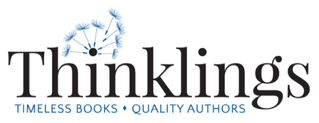|
UPDATE: The Writers' Collective is currently unavailable, but this article still provides interesting information about how Thinklings got started and about our values, skills, and experience.
Thinklings Books was originally started as a writing group. We three founders knew that writing, especially in the day of social media disconnect, was a lonely career. In addition to the solitude, writers (unlike companies with many—or even a few—employees) don’t have other people’s skills and strengths to fall back on when our own don’t suffice.
0 Comments
My name is Christopher Light, and I’m in charge of acquisitions here at Thinklings Books. Unlike the Bosses, my background isn’t in fiction writing or in editing, but in literary criticism—you know, the field in which clever nastiness is lauded for its hilarity.
One of my least favorite things about myself—which I’m working to fix—is that I get overwhelmed easily. I look at all the tasks I’ve been assigned, take in the big picture, and freak out. My brain says, “You must do ALL of this NOW.” I know that isn’t true, but that doesn’t stop the visceral reaction.
We answered the question "What is speculative fiction?" pretty quickly, but another question that seems to be coming up often is: "What kind of publisher is Thinklings?" We haven’t actually put a name to the type of publisher we are because there isn’t anyone else out there like us. But, since people like to be able to name things, and often use the established systems to do so, people often call us “indie” or “small press.” Thankfully, no one has confused us with the predatory vanity presses, which are publishers who have ads on TV (or elsewhere) trolling for unsuspecting writers. Everyone knows we aren’t traditional, so that must leave one of the other two: indie or small press.
But...we’re not either of those. Thinklings completely understands why big publishers want authors with platforms. The world is a noisy place, and getting your voice heard is a challenging endeavor. From my experience helping dozens of writers develop their platforms, I know how tricky it can be. And how time-consuming. It’s much easier, and cheaper, to find people with existing platforms than to advertise them through the marketing department. Even if a publisher finds a book they are in love with, they may not publish it if the author has no presence online.
So what is a writer supposed to do? Put aside her writing time to work on publicity? Not sleep? Give up leisure? Stop spending time with his family? Fortunately, Thinklings has come up with a solution. We call it “Platform in a Box.” Yesterday I started talking about how we at Thinklings do things a little differently in regard to how we get our income. Today I’m going to go over how we keep our expenses lower and how we cut down the normally expensive aspect of publishing.
Thinklings is not a normal publisher . . . in so many ways. But we do have some common restraints and complaints that the big publishers also have. Primarily regarding profit. Publishers don’t turn large profits. Never have. Anyone who wants to go into publishing to become wealthy has another think coming.
Jeannie here: your friendly, frazzled CMO of Thinklings. I'm also a literary consultant, and I've been in the biz for more than a decade and a half. This post was pulled from my blog.
I've always enjoyed writing letters. However, with the advent of modern technology, letter writing has fallen out of fashion. At least, that's what you'd think. While we may not use the post office to mail letters like we used to, there are modern heirs to the letter, but they've been co-opted . . . by impatience. The main heir would be email. I love email. Well, I love writing a good email letter. I do this with my editor Deborah and proofreader Sarah. They are both great writers, and we enjoy sending each other long, thought-out emails with interesting ideas. Same with my writer friend Emma who lives in Germany. |
Archives
July 2024
Categories
All
|
As an Amazon Associate, we earn from qualifying purchases.








 RSS Feed
RSS Feed
